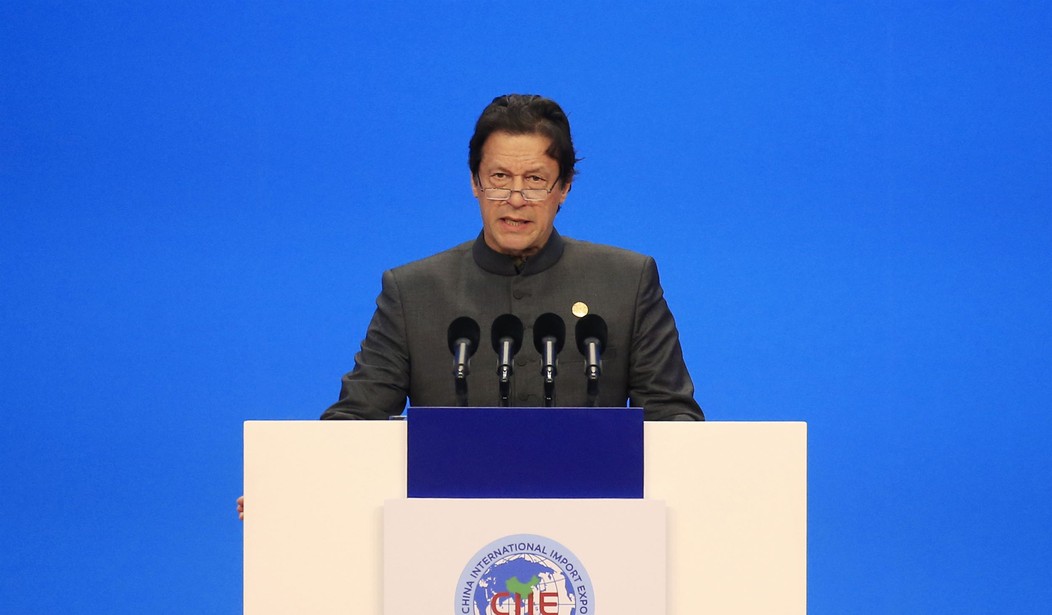Pakistan, the least stable of all nuclear powers, received a political shock to its system over the weekend. The opposition party, Tehreek-e-Insaf, or P.T.I., overcame the machinations of the military to win a crushing victory over the Pakistan Muslim League-Nawaz, or P.M.L.N.
PTI won 97 seats in the nation's National Assembly, the lower house, while PLMN, led by a three-time former prime minister, Nawaz Sharif, won at least 73 seats. The Election Commission says there are still 7 seats to be decided — not enough to change the outcome.
The PTI is led by former international cricket star Imran Khan, who gave his victory speech from his prison cell. Khan is serving 34 years on four separate charges trumped up by the military that included leaking state secrets and unlawful marriage. Three of those verdicts were issued just days before the election — a tactic the military has used in the past. But Khan's reformist message resonated with Pakistan's young people, who are tired of living with the shadow of military rule over them.
Indeed, Pakistan's military isn't formally in charge of anything except national security. But they dominate national politics behind the scenes and use their influence to pick and choose candidates to run for office. Without the backing of the generals, a candidate doesn't have much hope.
That's what makes Khan's victory such a shocker.
The success of Mr. Khan’s party was a head-spinning upset in an election that the military thought would be an easy victory for Mr. Sharif. Ahead of last week’s election, Pakistan’s powerful generals had jailed Mr. Khan, arrested candidates allied with him and intimidated his supporters to clear his party from the playing field — or so they thought. Instead, the election results confirmed that Mr. Khan remains a formidable force in Pakistani politics, despite his ouster and subsequent imprisonment.
Khan and PTI still have a long road ahead to gain power. The PTI's 97 seats fall far short of a majority in the 265-seat National Assembly. Coalition building will be difficult with the military overlooking the process. Some in the PTI have expressed a desire to remain in opposition. They feel that if they join any ruling coalition, they could be coopted and virtually neutered.
The results reflect “both an anti-establishment vote and also a vote against the status quo, against the two other major political parties that have been ruling the country and their dynastic politics,” Zahid Hussain, an analyst based in Islamabad, said. In this case, the military is the "establishment."
Vote fraud is not unknown in Pakistan — another reason to be surprised at the outcome. The PTI is looking to challenge many of the races they lost in court, although those challenges historically fail.
The incoming government is also likely to face a serious legitimacy crisis. The election on Thursday has also been criticized by some as one of the least credible in the country’s history, and delays in releasing the election results have led to widespread allegations that the military tampered with the vote count to tip the scales back in P.M.L.N.’s favor.
With P.T.I. promising bruising and lengthy court battles over the results, it could be some time before any party manages to form a government.
“We will pursue all legal options, and we will pursue all constitutional options,” said the PTI leader Raoof Hasan.
The bullying by the generals didn't work this time. Despite sending Khan to prison and arresting and jailing dozens of his key supporters, the people of Pakistan turned out to defy the generals and vote for serious reforms. Whether those reforms come to pass or not remains to be seen. In the past, when democracy got a little too real and threatened their hold on power, the military simply overthrew the legitimate government and installed a military dictatorship instead.
Can things be different this time?










